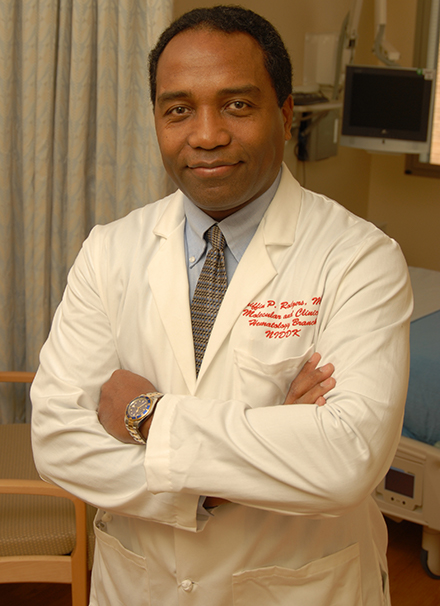Where were you born?
The National Institute of Diabetes and Digestive and Kidney Diseases (NIDDK)
What IC do you work for?
The National Institute of Diabetes and Digestive and Kidney Diseases (NIDDK)
How many years have you worked at the NIH?
36 years
Why did you choose to pursue a career in research?
When I was young, three of my close friends died of sickle cell disease. I watched them suffer unbearable pain before passing away. That experience, along with watching my mother – a public health nurse who took care of patients in community clinics – inspired my passion for medicine and public health. I chose to pursue biomedical research to try to improve the lives of people with sickle cell disease and other blood disorders.
What would you say is your most significant contribution to science or medicine?
At NIDDK, we study some of the most common, costly, and chronic conditions that affect Americans today. Our mission is to improve health, and I try to accomplish that goal in some way every day, whether through conducting research on sickle cell disease or helping ensure that NIH dollars support studies that improve health outcomes in the community, the country and around the world. To me, that’s the most important contribution I can make and have made – conducting and supporting work that can profoundly improve people’s lives.
Regarding your career here at NIH, what accomplishment are you the most proud of?
My colleagues and I helped develop the first effective, FDA-approved therapy for sickle cell, which now is also being used in children. More recently, we developed an effective stem-cell transplant regimen to reverse sickle cell disease in adults. The results of the stem cell transplant trials – done at NIH and elsewhere – put people on the path for a potential cure. It’s hard to describe how good it feels to help people with sickle cell live longer and better lives. The friends I mentioned, who passed away from sickle cell, were African American, and I am heartened to know that my work is helping some of the kids who came after them – and helping people with sickle cell across the globe. I hope my friends would also feel proud of these advances, and that they were an inspiration.





